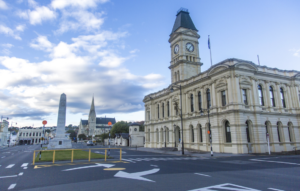The leader of New Zealand, Prime Minister Christopher Luxon, made a historic and heartfelt apology to survivors of abuse in state and church care. The apology was delivered in Parliament and was described as “formal and unreserved.” This marks a significant moment in New Zealand’s history, acknowledging the pervasive abuse, torture, and neglect that hundreds of thousands of children and vulnerable individuals faced while in care.
As Luxon addressed legislators and a public gallery filled with survivors of abuse, he acknowledged the gravity of the situation, stating, “It was horrific. It was a devastating experience. It was incorrect. And it should never have happened.” This apology comes in response to the findings of the most extensive inquiry ever conducted in New Zealand, which revealed that an estimated 200,000 individuals in state, foster, and faith-based care had experienced unimaginable abuse over a period of seven decades.
The victims of this abuse were disproportionately made up of Māori, New Zealand’s Indigenous population. Luxon expressed the government’s responsibility for altering the course of many lives and emphasized the need for vulnerable individuals to be treated with respect, dignity, and compassion in care facilities. However, instead of receiving care and support, these individuals were subjected to neglect, abuse, and, in some cases, torture.
The inquiry’s report, which culminated in a six-year investigation, labeled the findings as a “national disgrace”. It highlighted the need for accountability and justice for survivors of abuse, urging the government to take action to address the atrocities that occurred in state, foster, and church care settings. The inquiry’s recommendations included calls for apologies from state and church leaders, the prosecution of abusers, redress for survivors, and the reformation of child welfare systems.
Luxon acknowledged that his government is currently addressing 28 of the 138 recommendations made by the inquiry but did not provide concrete details regarding financial redress. This has led to criticism from survivors and advocates who question the government’s commitment to compensating victims for the trauma and suffering they endured. Luxon did state that a unified redress system would be implemented in 2025 but did not specify the amount of financial support that survivors could expect to receive.
The opposition leader, Chris Hipkins, emphasized the importance of providing redress to survivors and urged the government to act swiftly in addressing the needs of those who suffered abuse while in care. He stated that the cost of providing redress is insignificant compared to the debt owed to survivors and should not be used as a reason for delays in compensating victims.
Survivors who gathered at Parliament ahead of the apology expressed mixed reactions to the government’s statements. Some survivors felt that the government’s understanding of the full extent of the abuse was lacking and called for more substantial actions to be taken to address the trauma they experienced. Others voiced concerns about the lack of immediate financial redress and called for transparency in the government’s plans to compensate survivors.
The emotional impact of the abuse was palpable as survivors shared their stories at Parliament. Many survivors recounted how the abuse they endured had long-lasting effects on their lives, tearing families apart and leading to cycles of incarceration and poverty. The survivors emphasized the need for meaningful actions from the government to address the consequences of the abuse and prevent similar atrocities from occurring in the future.
Luxon’s refusal to terminate public servants or ministers in his government who denied the existence of state abuse during their tenures has drawn criticism from survivors. Additionally, allegations that Luxon’s government’s apology for the abuse is undermined by policies that disproportionately affect Māori, such as military-style boot camps for juvenile offenders and crackdowns on gangs, have raised concerns among advocates and survivors.
Despite these challenges, the apology issued by Luxon marks a significant step towards acknowledging the painful legacy of abuse in state and church care in New Zealand. It highlights the need for accountability, justice, and redress for survivors of abuse and calls for actions that will prevent similar atrocities from occurring in the future. Luxon’s acknowledgment of the government’s responsibility for the abuse and commitment to addressing the recommendations of the inquiry is a crucial first step towards healing and reconciliation for survivors of abuse in New Zealand.






